Two years into President Bola Tinubu’s tenure, the Nigerian tech ecosystem, envisioned as a powerhouse of innovation and driver of economic diversification, is still flying through rough air.
Progress, while visible, is slow and the journey to greatness, experts note, is hobbled by persistent hurdles.
The matter contrasts the huge expectations of Nigerians after the president promised a swift technologically-driven overhaul of Nigeria’s economy.
His record as former Governor of Lagos State, where technology was instrumental in boosting internally generated revenue (IGR), provided a strong basis for the optimism.
Nigeria’s ICT landscape, unarguably vital to national development, is still bogged down by unreliable power, high operational costs, uneven internet access, security threats and intricate regulatory hurdles.
Since his assumption of office, President Tinubu has consistently demonstrated a clear strategic intent to leverage digital innovation as a primary catalyst for economic growth. The vision found formal expression in the renaming of the Federal Ministry of Communication and Digital Economy to the Ministry of Communication, Innovation and Digital Economy, swiftly followed by the appointment of Dr. Bosun Tijani, an industry expert, as the minister.
Emphasising the foundational role of data and skilled human resources, President Tinubu stated: “We can only build our institutions with accurate data and cutting-edge data management capabilities that are reliable and effective. We can only rely upon our human resources for excellent service delivery to Nigerians if they are well-trained and ready to learn.” He further underscored the government’s commitment to a grassroots-up strategy: “The transfer of knowledge is essential for our nation and the continent. In this government, we believe that the only way to build our country is a bottom-up approach and from one single sheet of paper, we can create an end-to-end solution for public administration that will rid our service of its worst tendencies in favour of effectiveness and reliability.”
Wale Edun, the Coordinating Minister of the Economy and Minister of Finance, highlighted the clear economic significance of the ICT sector, highlighting its 16 percent contribution to Nigeria’s GDP in 2024.
“We are prioritising the ICT sector as a key driver of economic stability and job creation,” Edun affirmed.
He also cited President Tinubu’s recent engagement with Flutterwave’s Chief Executive Officer, Olugbenga Agboola, noting the company’s pledge to support Nigerian youth and small businesses through technology-driven solutions. Edun observed: “Flutterwave is considering listing on Nigeria’s Stock Exchange and we expect this to strengthen the tech and payments ecosystem further.”
In alignment with its commitment to ICT development, the Federal Government, through the Ministry of Communications, Innovation and Digital Economy, has unveiled a series of forward-looking policies. These include the 3,000,000 Technical Talent (3MTT) initiative, designed to cultivate a substantial pool of skilled tech professionals, thereby bolstering Nigeria’s digital economy and establishing the nation as a global exporter of digital talent. Another critical undertaking is Project 774LG Connectivity, which aims to extend internet access to all 774 local government secretariats nationwide, fostering inclusivity and digital access at the grassroots level. The objective leverages existing national infrastructure, including NIGCOMSAT and Galaxy Backbone’s fiber-optic network, to deepen digital penetration and stimulate the digital economy.
To further enhance internet penetration, the government established a special-purpose vehicle (SPV) tasked with deploying an additional 90,000 kilometers of fiber-optic cable, a foundational infrastructure push that has already attracted significant interest from the World Bank.
The National Digital Economy Policy and Strategy (2020–2030), inherited from the previous administration, has been revitalised with more huge targets and increased financial backing. This is complemented by the National Digital Innovation and Entrepreneurship Policy, which strategically aims to nurture the startup ecosystem through targeted tax incentives, streamlined regulatory procedures, and facilitated access to capital via government-backed venture funds—all crucial enablers for startup success in Nigeria’s evolving digital landscape.
Global development institutions have acknowledged the profound importance of these concerted efforts. The World Bank, for instance, highlighted that a 10 percent increase in mobile broadband penetration can substantially boost economic growth in developing countries, estimating a potential 2.5 percent rise in GDP per capita across Africa.
The Bank’s analysis showed that expanding broadband access is key to accelerating digital transformation and economic development, particularly in regions where connectivity lags.
The administration’s support for the digital economy and e-governance has been exemplary. The government has strategically prioritised the development of a thriving digital ecosystem, with plans to enact the Digital Economy and e-Governance Bill, 2024. As part of this drive, states are being actively encouraged to eliminate bureaucratic bottlenecks, such as Right of Way (RoW) fees, which impede telecom infrastructure deployment. There is also a strategic imperative to migrate all government ministries, departments, and agencies to the OneGov.ng portal, aimed at streamlining e-governance processes and improving service delivery.
Globally, the administration has advanced Nigeria’s digital infrastructure by facilitating the landing of a Meta-backed submarine cable, designed to double the country’s subsea internet capacity and significantly invigorate economic activities, particularly within the tech and creative sectors. The government is also proactively cultivating partnerships with leading global technology companies to foster innovation, enhance capacity building, and unlock monetization opportunities for Nigerian digital creators. Youth empowerment remains a central pillar of these digital initiatives, with sustained funding for programs like the 3MTT initiative promoting widespread digital skills acquisition. Other complementary efforts include supporting digital health innovation hubs and actively encouraging technology adoption among small and medium-scale enterprises (SMEs) to boost their productivity and competitiveness.
On the critical infrastructure front, the administration has achieved landmark strides with significant investments in broadband expansion. A Special Purpose Vehicle (SPV) has received approval to deliver an additional 90,000 km of fiber-optic cable, thereby expanding Nigeria’s digital backbone to at least 125,000 km. This monumental undertaking will position Nigeria as the third-longest terrestrial fiber-optic network in Africa, after Egypt and South Africa strategically positioning the country as a leading digital hub on the continent.
Dr. Bosun Tijani, Minister of Communications, Innovation, and Digital Economy, confirmed: “This project will result in the third-longest fiber-optic network in Africa, following only South Africa and Egypt.” He further noted the substantial progress made, bolstered by the Ministry of Finance’s support and a $500 million funding commitment secured from the World Bank.
In a further demonstration of Nigeria’s digital ambition, Tijani disclosed that the country is on track to become one of the first in Africa to fully transition from IPv4 to IPv6, a fundamental step toward achieving more robust internet connectivity, enhanced security, and future-ready digital infrastructure.
Regarding the persistent challenge of Right of Way (RoW) fees, Tijani revealed that 11 states have now complied with the Federal Government’s request to waive these charges, an important step aimed at lowering broadband deployment costs and accelerating internet penetration nationwide. To fortify international linkages, President Tinubu approved the conversion of a federal property in San Francisco, USA, into a Nigerian Digital Technology Exchange Programme Hub, known as the Nigeria Startup House. This initiative is strategically designed to connect Nigeria’s burgeoning startup ecosystem to global tech markets and attract crucial foreign direct investment (FDI). On the policy and regulatory front, the President directed that digital infrastructure investments be prioritized, accompanied by sweeping reforms to dismantle bureaucratic bottlenecks. Among these is a critical review of withholding tax policies for telecom companies, aimed at stimulating further private-sector investment in broadband and digital infrastructure.
The administration has also actively fostered large-scale private sector participation. Notably, American Tower Corporation (ATC Nigeria) has sustained a major investment drive, with its cumulative investments in digital infrastructure surpassing $2.19 billion since 2015. Collectively, these multifaceted efforts ranging from fiscal policies and regulatory reforms to global partnerships and massive infrastructure investments—are strategically designed to expand digital access, reinforce Nigeria’s digital backbone, and firmly establish the country as a formidable player in the global digital economy.
To strategically bridge Nigeria’s digital divide, the Universal Service Provision Fund (USPF), in collaboration with development partners, has announced plans to deploy an additional 1,000 base transceiver stations (BTS) in rural communities across the country. This effort complements the 7,000 BTS recently unveiled by the Federal Government as part of its broader push to improve nationwide connectivity. Data from the Nigerian Communications Commission (NCC) indicates significant infrastructure development in 2022, with mobile network operators recording substantial progress. The USPF also highlighted remarkable strides in closing the country’s connectivity gap, narrowing it by 57.97% between 2013 and 2024, reducing unconnected clusters and directly impacting 13.8 million Nigerians. Furthermore, the number of people living in unserved and underserved areas has significantly decreased, reflecting sustained government investment and commitment to universal digital inclusion.
Despite the renewed momentum in Nigeria’s digital transformation, the telecom sector continues to grapple with ingrained obstacles many of which predate the Tinubu administration. Both ATCON and ALTON have jointly sounded the alarm over several critical issues threatening the industry’s long-term sustainability and its capacity to deliver quality services. These include: pervasive multiple taxation, excessive Right of Way (RoW) charges, persistent infrastructure vandalism, severe foreign exchange constraints, and chronically inconsistent power supply.
Regarding the tax burden, Taiwo Oyedele, Chairman of the Presidential Fiscal Policy and Tax Reforms Committee, revealed that Nigeria officially grapples with over 60 types of taxes, with unofficial estimates exceeding 200. He added that some states impose between 100 to 117 different levies, further complicating the business environment. Adebayo noted that the telecom sector alone contends with over 50 different taxes, levies, and regulatory charges, making it one of the most overtaxed sectors in the economy. The removal of petrol subsidies, which triggered inflation nearing 30 percent, has compounded this challenge, leading to surging operating costs for telecom operators, primarily driven by the escalating expense of powering infrastructure.
The initial liberalisation of the telecom sector nearly 25 years ago came with a federal government promise of at least 18 hours of daily national grid electricity supply a commitment that remains unfulfilled. Nigeria’s aging and inefficient transmission infrastructure has made consistent power supply elusive, forcing telecom operators to heavily rely on expensive and vulnerable diesel generators, inverter batteries, and solar power systems. Unfortunately, these alternative power sources are frequently vandalized or stolen, adding further strain to already overstretched operational budgets. These persistent challenges, if not urgently addressed, risk undermining the substantial progress made in Nigeria’s digital economy and could impede future growth, innovation, and job creation within the sector.
Despite government reforms and recent tariff adjustments, the telecoms sector continues to face severe headwinds.
Karl Toriola, the Chief Executive Officer of MTN Nigeria, painted a worrying picture, likening the industry’s condition to “a sick patient in an intensive care unit (ICU) gasping for breath.” Gbenga Adebayo corroborated, cautioning that without further tariff adjustments, the sector might be forced to adopt service rationing, similar to load shedding in the power sector, due to unsustainable operating costs.
To avert such, the federal government recently approved a 50 per cent adjustment in telecom end-user tariffs.
The measure, announced by Dr. Aminu Maida, Executive Vice Chairman/CEO of the NCC, aimed to stabilise the industry and enable operators to invest in service quality improvements. The decision was broadly welcomed by industry stakeholders. However, consumer groups remain skeptical about the immediate impact. “We are appalled by the poor service quality. The worst is data, it vanishes anyhow,” lamented subscribers. Dr. Maida has assured the public that service improvements will take time, citing over $1 billion committed by operators for upgrades and network expansion, reinforcing the NCC’s stance that the industry needs a three-month grace period to deliver visible results. Subscribers remain watchful, hoping the financial lifeline translates into meaningful change.
In a decisive step to fortify Nigeria’s digital infrastructure, President Tinubu signed the Designation and Protection of Critical National Information Infrastructure Order, 2024, into law. This landmark order establishes a legal framework for protecting vital ICT assets including telecom towers, data centers, and fiber optic cables against sabotage and vandalism, prescribing strict penalties. This intervention is crucial for a sector often described as “the chicken that lays the golden egg,” consistently contributing significantly to Nigeria’s GDP (17.68% in Q4 2024, with telecoms driving 14.40%).
Yet, national security challenges persist. Despite mandatory NIN-SIM linkage, criminal elements continue to exploit mobile infrastructure, with kidnappers using phones for ransom. Lawmakers have expressed deep frustration, with Chinedu Ogah stating, “Every crime committed in the country rides on infrastructure operated by MNOs and both the NCC and the operators are aware of this.” Lawyers have even accused the NCC and MNOs of complicity, calling for prosecution. Eletu Moshood Olawale questioned the true value for Nigerians from the NCC-MNO partnership, seeing it driven by profit. Dr. Maida countered that regulatory decisions have stabilized the sector, citing the deactivation of 60 million unlinked SIMs and full operator cooperation with lawful intercept requests.
These initiatives collectively marked significant strategic progress in Nigeria’s ICT sector under the current administration, focusing on securing infrastructure, expanding access, empowering youth, and positioning Nigeria as a leading African digital economy. However, a potential 5% increase in data and voice service charges, if the Nigeria Tax Bill 2024 becomes law, could burden consumers and impede digital inclusion. Industry operators warn this excise tax is inappropriate for essential services and will further squeeze already thin margins. “The government should not be so extractive of the average Nigerian,” Adebayo cautioned.
Jide Awe, Founder of Jidaw.com Ltd., described Tinubu’s first two years in the ICT and telecommunication sectors as a “mixed bag.” While commending initiatives like the 3MTT program for fostering digital skills and job creation, he emphasized the persistent challenges. Awe highlighted the need to address the digital divide caused by high internet costs and the lack of affordable devices. He stressed that “while the policies are impressive, their benefits hinge on actual implementation with tangible results for Nigeria. Technology and policies are not simply for show or an end in themselves.” He also underlined the critical need for improved power supply and a reduction in “extortionist right-of-way charges, multiple taxation, insecurity of telecom infrastructure, the indiscriminate shutting down of telecommunication sites, and bureaucratic bottlenecks.”
Bolaji Balogun, CEO of Chapel Hill Denham, underscored ICT’s vital role in Nigeria’s security and development. He urged increased localization to reduce foreign exchange dependency, leveraging capital markets, and developing a steady pool of skilled human capital. Balogun warned that only investments.not taxation.will lift Nigerians out of poverty. Despite ambitious policies, many require long gestation periods, and unresolved challenges including persistent insecurity, multiple taxation, and restricted foreign exchange access for telcosremain major roadblocks to meaningful growth and development in Nigeria’s ICT sector.



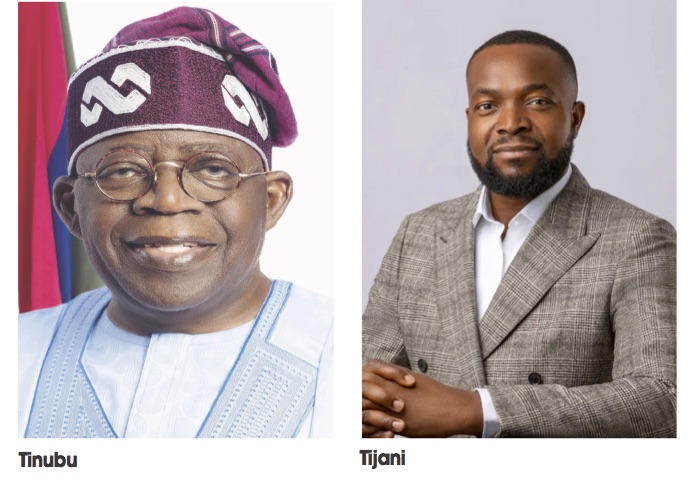

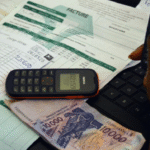
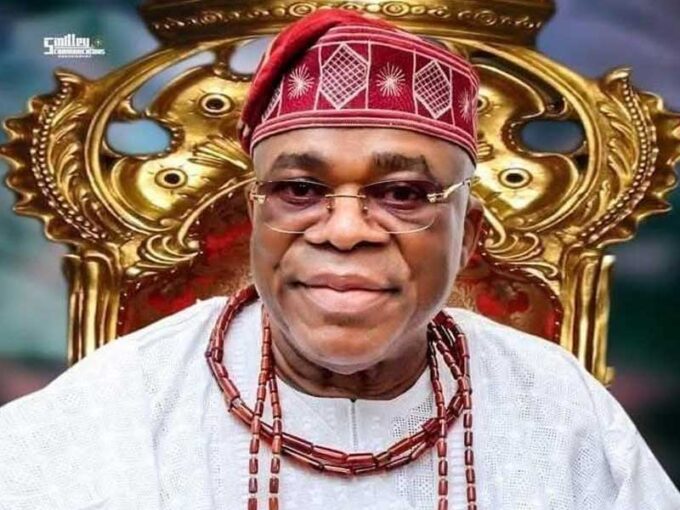

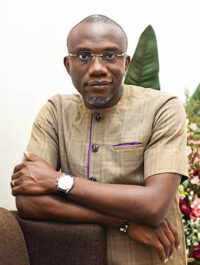








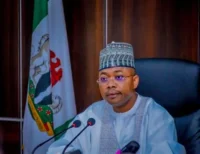
Leave a comment